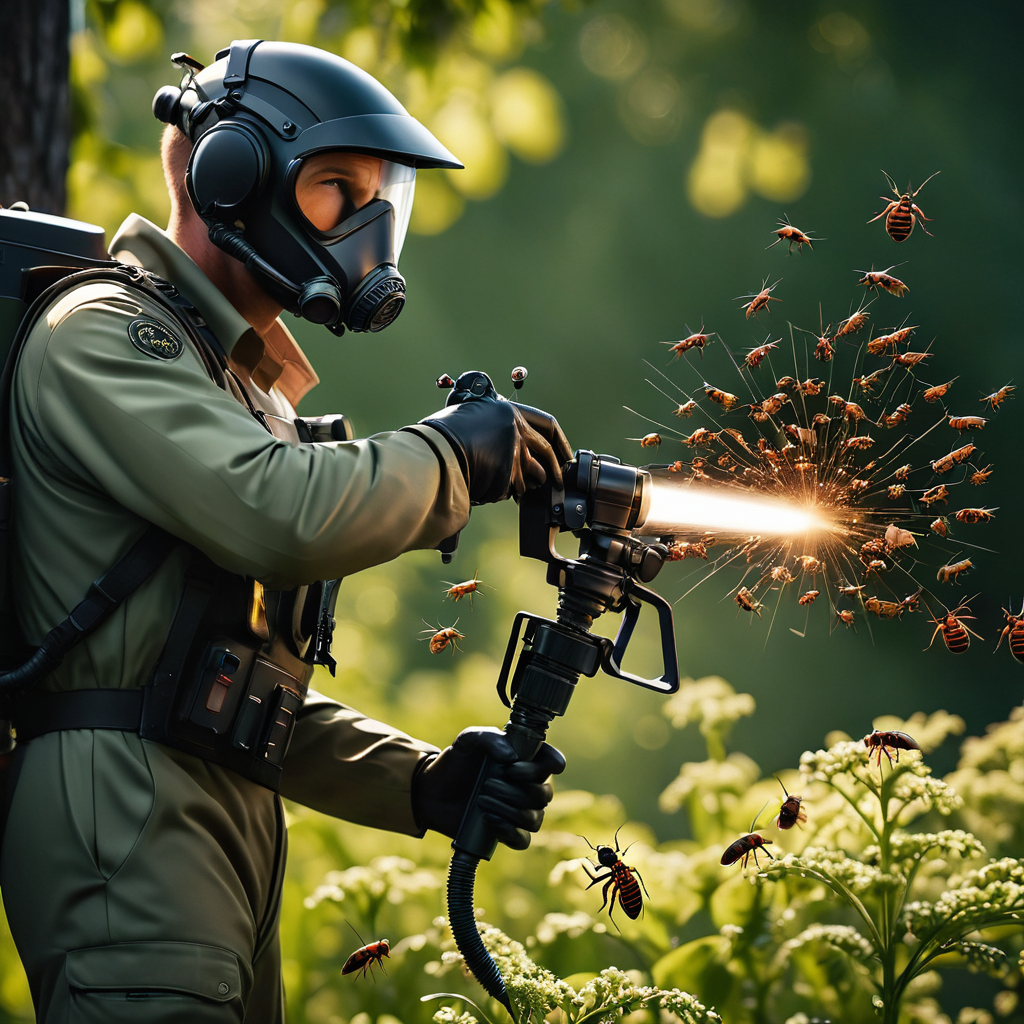
Household pests can be a nuisance and a threat to your property, health, and well-being if left unchecked. From insects to rodents, identifying the signs of common household pests and knowing when to take action is essential for effective pest management and prevention. By staying vigilant and proactive in monitoring your home for signs of pest infestations, you can protect your living environment and address pest issues promptly to minimize damage and potential health risks.
1. Common Household Pests to Watch Out For:
– Ants: Ants are common household pests that can invade your home in search of food and water. Look for trails of ants, particularly in the kitchen and pantry, as well as small piles of dirt or sand near entry points.
– Cockroaches: Cockroaches are resilient pests that thrive in warm, humid environments. Keep an eye out for cockroach droppings, egg casings, musty odors, and nocturnal activity in dark, secluded areas.
– Rodents: Mice and rats can cause structural damage and spread diseases in your home. Watch for gnaw marks, droppings, nests, and scratching sounds in walls or ceilings.
– Spiders: Spiders are beneficial predators but can become a nuisance if they infest your home. Check for webs, egg sacs, and spiders in corners, windows, and other secluded areas.
– Termites: Termites can cause extensive damage to wooden structures in your home. Look for mud tubes, discarded wings, hollow-sounding wood, and sagging floors or ceilings.
– Bed Bugs: Bed bugs are parasitic insects that feed on blood and can infest bedding, furniture, and clothing. Check for bites on your skin, blood spots on sheets, and dark fecal stains on mattresses.
2. When to Treat for Pests: – Seasonal Changes: Pests may become more active during certain seasons, such as spring and summer, when temperatures rise and food sources are abundant. Be proactive in pest prevention and treatment during peak pest seasons.
– Visible Signs: If you notice visible signs of pest activity, such as droppings, nests, or damage, it is important to take action promptly to prevent the infestation from spreading and causing further harm.
– Health Risks: Pests can pose health risks to you and your family through bites, stings, allergies, and the spread of diseases. If you suspect a pest infestation that may compromise your health and safety, seek professional pest control services.
– Property Damage: Pests like termites, rodents, and carpenter ants can cause significant damage to your home’s structure, furniture, and belongings. Addressing pest issues early can help prevent costly repairs and property damage.
– Recurring Infestations: If you have experienced recurring pest infestations despite your efforts to control them, it may be time to consult with a pest control professional for a comprehensive treatment plan and long-term pest management solutions.
3. Prevention Tips for Pest Control: – Seal Entry Points: Close off gaps, cracks, and openings around doors, windows, pipes, and vents to prevent pests from entering your home.
– Maintain Cleanliness: Keep your home clean and clutter-free to eliminate food sources and hiding spots for pests.
– Store Food Properly: Store food in airtight containers, clean up spills promptly, and dispose of garbage regularly to deter pests from foraging in your home.
– Trim Vegetation: Keep shrubs, trees, and vegetation trimmed away from your home to prevent pests from using them as pathways to enter your property.
– Regular Inspections: Conduct regular inspections of your home for signs of pests and take immediate action if you detect any issues to prevent infestations from worsening.
At the end of the day, being aware of the common household pests to watch out for and knowing when to treat for pests is essential for maintaining a pest-free and healthy living environment. By staying informed, proactive, and diligent in pest prevention and management, you can safeguard your home against unwanted intruders and protect your property, health, and peace of mind. If you suspect a pest infestation or need assistance with pest control, consider consulting with a licensed pest control professional to assess the situation, implement effective treatment strategies, and help you maintain a pest-free home for you and your family.
Cedar Hill St. Louis Jefferson County Olivette Kirkwood Ballwin Arnold Franklin County St Charles County Fenton High Ridge Dittmer Creve Coeur
